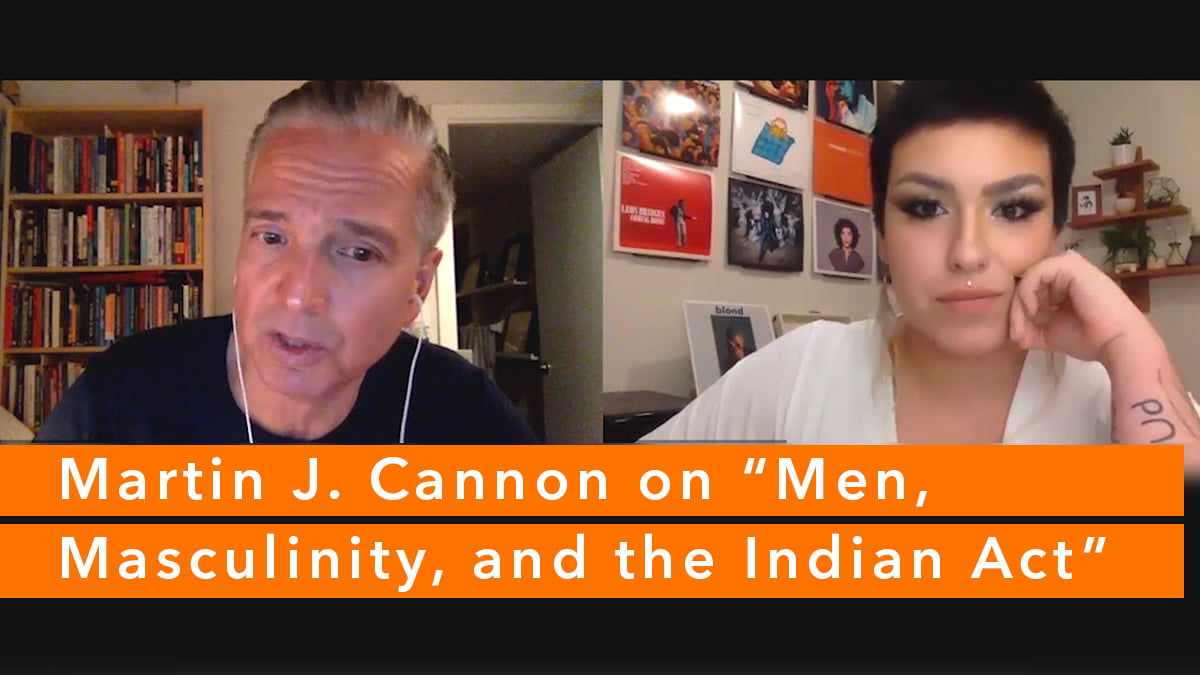Canada’s Indian Act, which has existed since 1876, has sexist underpinnings. Through many iterations of the legislation, a woman’s status rights flowed from her husband. Even once it was amended to reinstate rights lost through marriage or widowhood, Indigenous women could not necessarily pass status on to their descendants.
In conversation with Fourth-Year Undergraduate Student, University of Toronto, Riley Yesno, Martin J. Cannon, Anishinaabe Indigenous Rights Advocate and Associate Professor, Department of Social Justice Education, Ontario Institute for Studies in Education, University of Toronto, discussed how feminist theory inspired his book “Men, Masculinity, and the Indian Act.”
Sexism is always interlocked with racialized discrimination
In his book, Cannon explores how sexism is interlocked with racialized discrimination in the Indian Act and how it is used as a tool to mobilize and entrench colonial dominance. For example, sexism within the Indian Act affects all Indigenous people by disrupting the matrilineal structure of nations. It also undermines the collective rights of nations by legislating who gets to belong and who doesn’t.
“Sexism is the instrument of power that’s used to disrupt the balance between men, women and non-binary people. It is the instrument used to reverse our stories of creation, peace and gender, and also non-patriarchal ways of knowing”
What has sexism meant for Indigenous men?
Drawing from his own experience, Cannon, who is Onyota’a:ka (Oneida Nation), Turtle Clan, and a citizen of the Six Nations at Grand River Territory, discussed the potential of a decolonizing approach to Indigenous masculinities. He encourages Indigenous men to begin to articulate the complex ways in which their life’s journey is shaped by discrimination directed at Indigenous women. Only then can a transformative discussion about Indigenous nationhood, citizenship, and reconciliation take place.
Dismantling the legal and conceptual regime of Indianness
Cannon stressed the need to move forward from thinking of and treating Indigenous peoples as one race. In order to undo citizenship injustice, Canada needs to acknowledge Indigenous peoples not as one people, but as nations.
“Canada needs to acknowledge who we are as Indigenous people and citizens especially outside of Federal jurisdiction and colonial legislation. We need to understand how we belong outside of racialized ways of thinking.”




